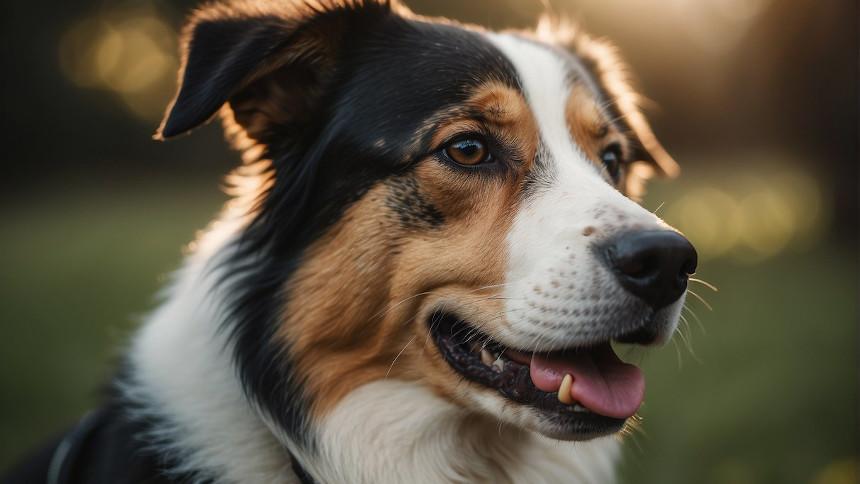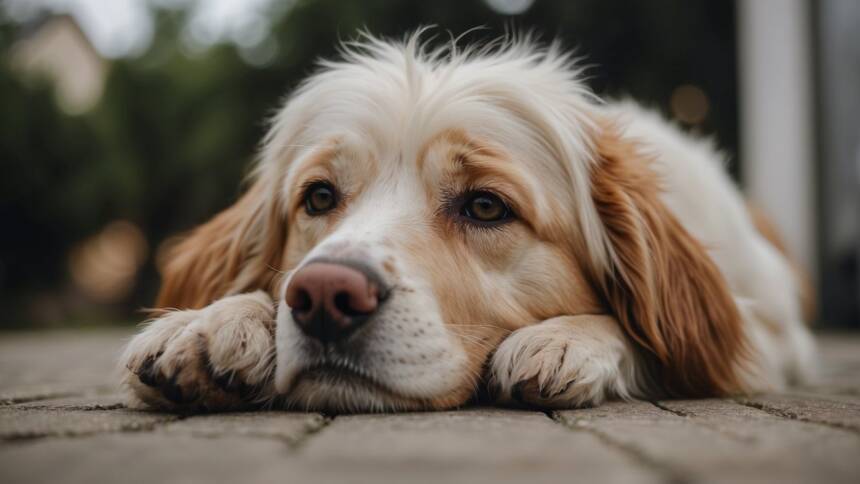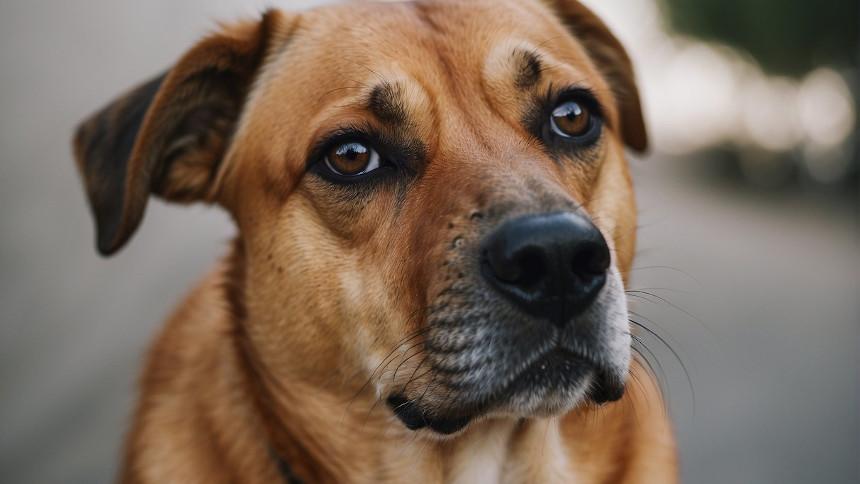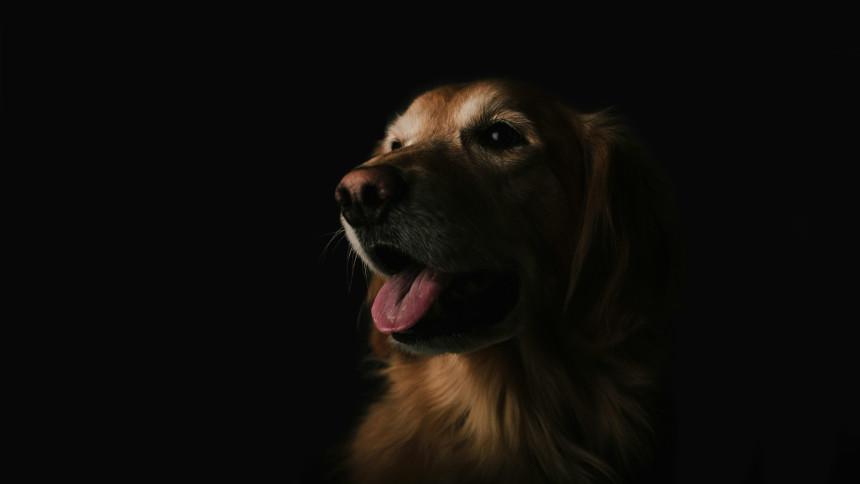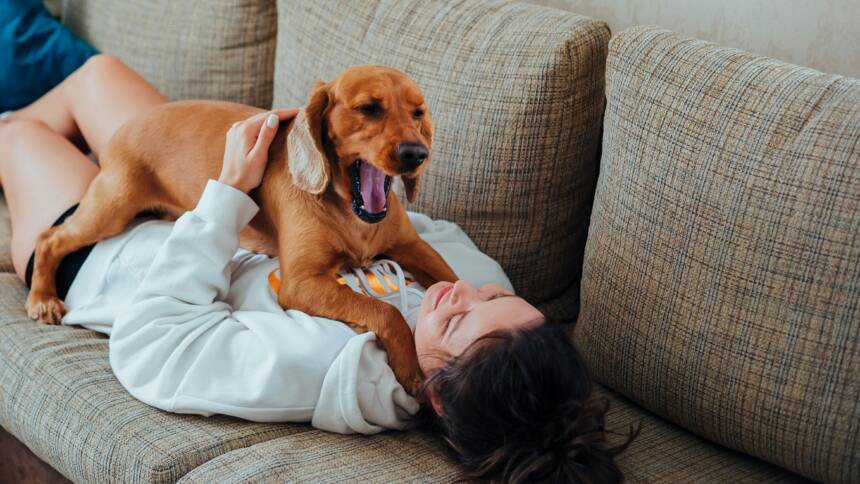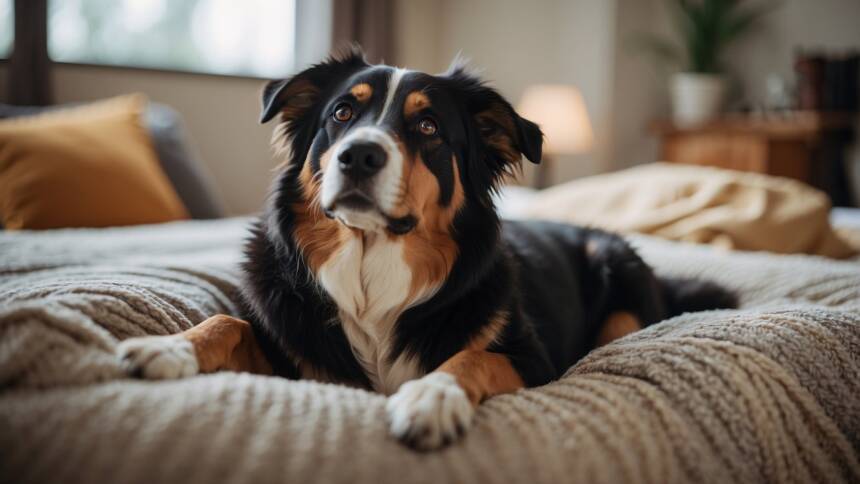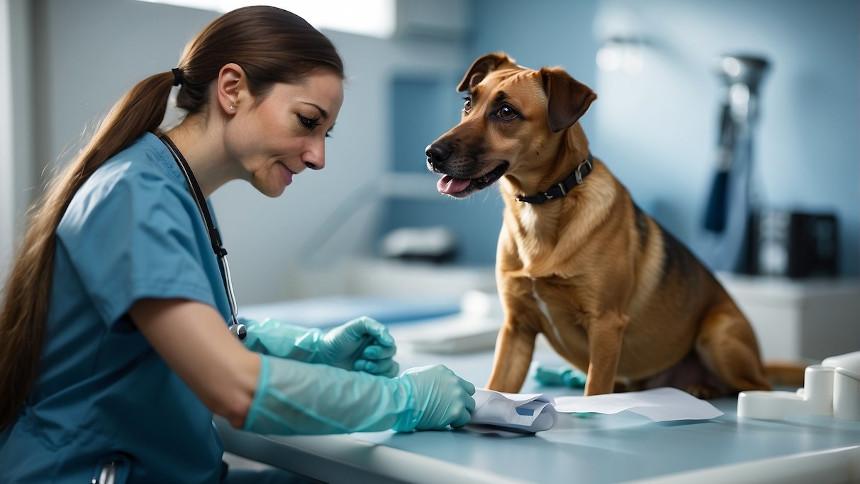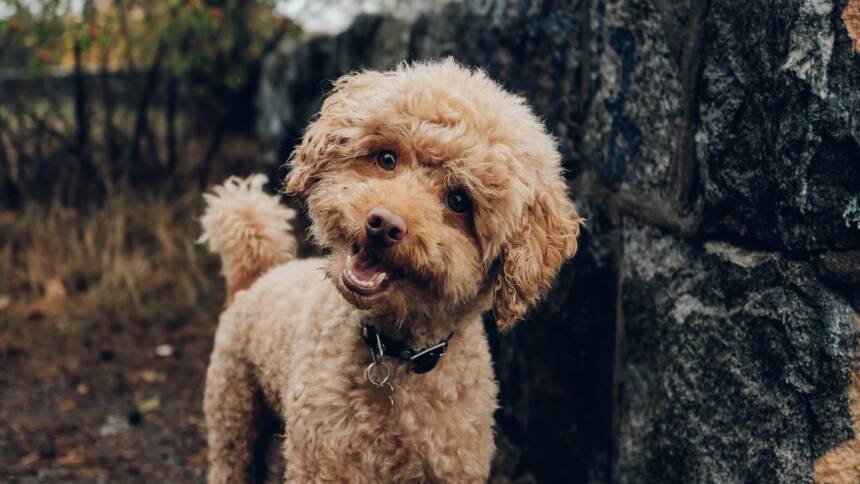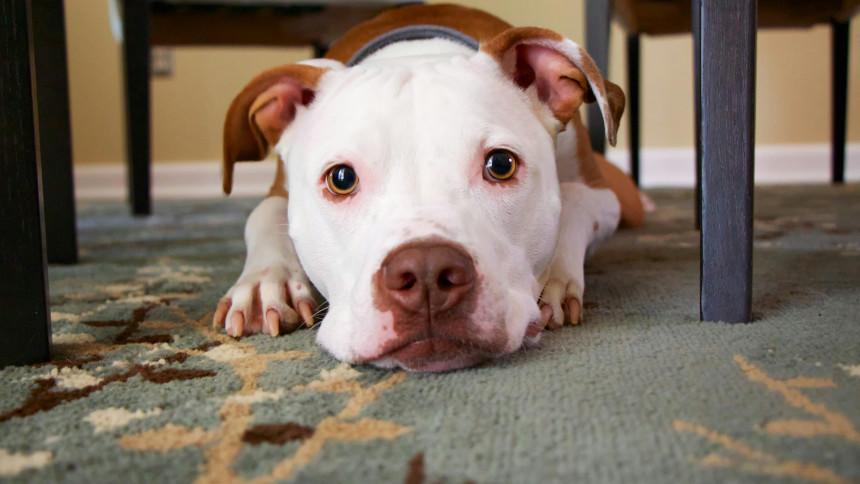Dogs exhibit various behaviors that often pique the curiosity and concern of their owners. One such behavior is frequent lip licking, which might seem innocuous at first, but can occasionally signal underlying issues. Observing a dog licking its lips excessively warrants attention as it can be a manifestation of various physical or emotional states.
Physical discomfort, ranging from dental problems to allergies and nausea, is a common reason for this behavior. Oral issues such as infected teeth or gums can lead to lip licking due to the associated pain or irritation. Allergies, whether to food, environmental factors, or external parasites, can also cause discomfort around the mouth, prompting dogs to lick their lips in an attempt to soothe the itching or irritation.
Emotional responses such as anxiety or stress may also trigger a dog to lick its lips more than usual. It is a non-threatening signal in the canine world, often used to communicate a wish to avoid conflict or to indicate discomfort with a situation. Understanding and correctly interpreting the context of a dog’s lip licking behavior is crucial for providing proper care and addressing any potential problems.
Understanding Dog Body Language
Dogs communicate extensively through their body language. Lip licking in dogs is one such behavior that can signify a range of emotions and messages.
Communication and Calming Signals
Lip licking in dogs often serves as a communication tool and a calming signal. Dogs lick their lips to convey passive intention and to appease when interacting with other dogs or humans. This behavior is a part of a set of appeasement gestures that also may include yawning, turning away, or lowering the body to indicate a desire for peace and to prevent conflict.
Stress and Anxiety Indicators
Stress and anxiety are commonly expressed through various indicators in a dog’s body language, with excessive lip licking being one of them. When a dog is unsure or feeling pressured, for example during a confusing training session, lip licking along with other stress-related behaviors such as yawning and scratching can become more pronounced. This significant increase in licking behavior often acts as a signal that the dog is experiencing discomfort or uncertainty.
Normal Behavior in Dogs
Normal behavior in dogs encompasses a range of actions, including occasional lip licking, which can be simply a physiological response to tasting something pleasing or after eating. However, when a dog frequently licks their lips accompanied by signs of discomfort such as loss of appetite or changes in behavior, it could point to health issues like dental disease or nausea that may require veterinary attention.
Each of these aspects of dog communication through body language, especially lip licking behaviors, are important for owners to recognize and understand in the context of their dog’s overall body language and environmental circumstances.
Common Causes of Excessive Lip Licking
Excessive lip licking in dogs can signal underlying health issues ranging from oral discomfort to allergic reactions. This behavior shouldn’t be overlooked as it often points to conditions that require attention or treatment.
Oral Health Issues
Dental Disease
- Pain and discomfort: Conditions like periodontal disease can cause significant oral discomfort leading to persistent lip licking.
- Symptoms to watch for: Symptoms that accompany dental diseases may include bad breath, difficulty chewing, and bleeding gums.
Foreign Objects
- Objects caught between teeth or in the oral cavity can cause irritation, prompting a dog to lick its lips in an attempt to dislodge the irritant.
Digestive Discomfort
Nausea
- Vomiting and diarrhea: Lip licking is often a precursor to vomiting, and it is commonly observed when dogs experience nausea or digestive upset.
- Acid Reflux: In cases of acid reflux, dogs might lick their lips due to the discomfort caused by stomach acids entering the esophagus.
Irritant Ingestion
- Ingesting irritants can lead to gastrointestinal distress, manifesting as increased saliva production and consequent lip licking.
Allergic Reactions
- Allergens: Dogs can develop allergies to food or environmental factors, resulting in itchy skin or oral mucosa, leading to lip licking.
- Dermal manifestations: Alongside licking, allergic reactions might also cause a dog to chew on paws, rub its face, or exhibit other signs of discomfort.
Identifying Associated Symptoms

When a dog frequently licks their lips, it is crucial to observe any accompanying symptoms that may indicate underlying issues. Close observation of a dog’s behavior and physical state can provide insights into whether the lip licking is a benign habit or a sign of a more serious condition.
Behavioral Changes
Dogs exhibiting stress or anxiety may show a change in their normal behavior patterns. Look for signs like:
- Hiding or avoidance: They may seek solitude and avoid interaction.
- Pacing or restlessness: Indicates they are experiencing discomfort or nervousness.
- Decreased appetite: Reluctance to eat may signal an issue, possibly related to oral discomfort.
Physical Signs
Physical manifestations can be indicative of discomfort or illness in dogs. Be aware of:
- Excessive drooling: This could be a sign of oral issues or dehydration.
- Lethargy: Less activity or enthusiasm can be linked to a variety of health concerns.
- Physical discomfort in the mouth: Check for signs like swelling or redness that may imply dental issues.
Relevant Health Conditions and Diseases

Excessive lip licking in dogs can be an indication of various health-related issues. This section explores the chronic and acute medical conditions related to this behavior.
Chronic Medical Issues
Skin Conditions and Allergies: Dogs may lick their lips excessively due to irritation caused by skin conditions like allergies or external parasites such as fleas. Skin allergies can also lead to itching and licking in other areas, like paws and abdomen.
Dental Disease: Oral health problems such as tooth infections or gum disease can provoke frequent lip-licking.
Dehydration: Chronic conditions like kidney or liver disease may lead to dehydration, causing a dog to lick their lips more often as a response to the sensation of dryness.
Cognitive Dysfunction: In older dogs, cognitive dysfunction syndrome, similar to dementia in humans, may manifest as repetitive behaviors including lip licking.
Acute Medical Events
Injuries: Acute pain resulting from injuries to bones, joints, muscles, or the presence of foreign bodies in the mouth can trigger excessive lip licking.
Pancreatitis: Commonly associated with abdominal pain, vomiting, and diarrhea, pancreatitis can cause dogs to lick their lips due to the discomfort.
Seizures: While not as common, neurological disorders, such as epilepsy, may result in lip-licking behaviors. Partial focal seizures can especially present with such subtle signs.
Environmental Stressors: Dogs exposed to stressful environments may display lip licking as a calming signal or appeasement behavior. This could be in response to immediate stressors or changes in their surroundings.
Guidelines for Pet Parents

Closely monitoring a dog’s behavior provides insight into their well-being. Understanding why a dog licks their lips excessively equips pet parents with the knowledge to address their pet’s needs effectively.
At-Home Observation
Pet parents should observe their dog’s daily habits, noting any changes in thirst, hunger, and overall behavior. Dogs may lick their lips due to harmless reasons such as excitement or grooming, but it can also signal a need for attention or indicate underlying health issues.
- Thirst and Hunger: Monitor if lip licking is associated with meal times or a sign of increased thirst.
- Excitement: Dogs often lick their lips in anticipation of food or during play.
- Grooming: Occasional lip licking is normal during self-cleaning.
- Attention-Seeking: Dogs might lick their lips to prompt interaction from their owners.
Maintain a routine to help distinguish between normal behavior and potential red flags that require attention.
When to Seek Veterinary Care
Pet parents must seek professional help when they notice persistent or unusual lip licking. The presence of additional symptoms such as a loss of interest in food, signs of oral discomfort, or excessive licking of other body parts may indicate a health issue that warrants a veterinary check-up.
- Oral Discomfort: Signs of dental issues include reluctance to eat or pawing at the mouth.
- Skin Conditions: Compulsive licking of the skin can be due to allergies or parasites.
- Behavioral Disorders: Repetitive behaviors or changes in interaction may suggest anxiety or stress.
Schedule a time for a thorough veterinary exam if symptoms persist or worsen to ensure timely and appropriate care.
Conclusion

Frequent lip licking in dogs can be a sign of various underlying issues. It is important for pet owners to observe their dog’s behavior closely and to consider the following potential causes:
- Stress or Anxiety: Dogs might lick their lips as a non-confrontational gesture when feeling uneasy or threatened.
- Medical Conditions: Pain from conditions like osteoarthritis, skin issues including allergies and infections, dental disease, or gastrointestinal discomfort can all lead to excessive licking.
- Environmental Factors: Licking can increase during meal times or when dogs encounter new or stimulating situations.
If a dog suddenly starts to lick their lips excessively or displays other changes in behavior, they should be examined by a veterinarian. Treatment will vary depending on the diagnosis but may include medications for allergies or pain, dietary changes, or behavioral therapy for anxiety.
It is crucial to avoid self-diagnosing a dog’s symptoms, as many of the causes of excessive lip licking share similar signs. A professional assessment ensures they receive appropriate care for their specific condition. Prompt attention to sudden changes in a dog’s licking behavior can significantly improve their quality of life.
